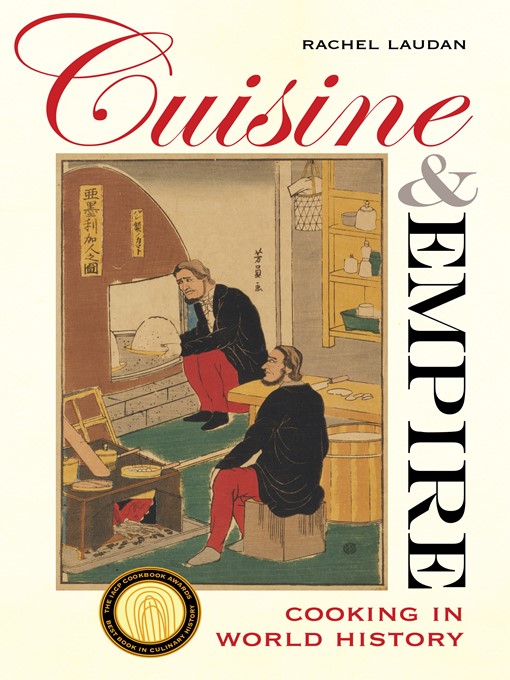- Popular Magazines
- Home & Garden
- News & Politics
- Food & Wine
- Celebrity
- Outdoor & Travel
- Art & Architecture
- Business & Finance
- Crafts
- Family & Parenting
- Boating & Aviation
- Science
- Photography
- See all
-
Description
-
Details
-
Reviews
Cuisine and Empire shows how merchants, missionaries, and the military took cuisines over mountains, oceans, deserts, and across political frontiers. Laudan's innovative narrative treats cuisine, like language, clothing, or architecture, as something constructed by humans. By emphasizing how cooking turns farm products into food and by taking the globe rather than the nation as the stage, she challenges the agrarian, romantic, and nationalistic myths that underlie the contemporary food movement.

Kindle Book
- Release date: October 10, 2013
OverDrive Read
- ISBN: 9780520954915
- Release date: October 10, 2013
EPUB ebook
- ISBN: 9780520954915
- File size: 25135 KB
- Release date: October 10, 2013

Loading
